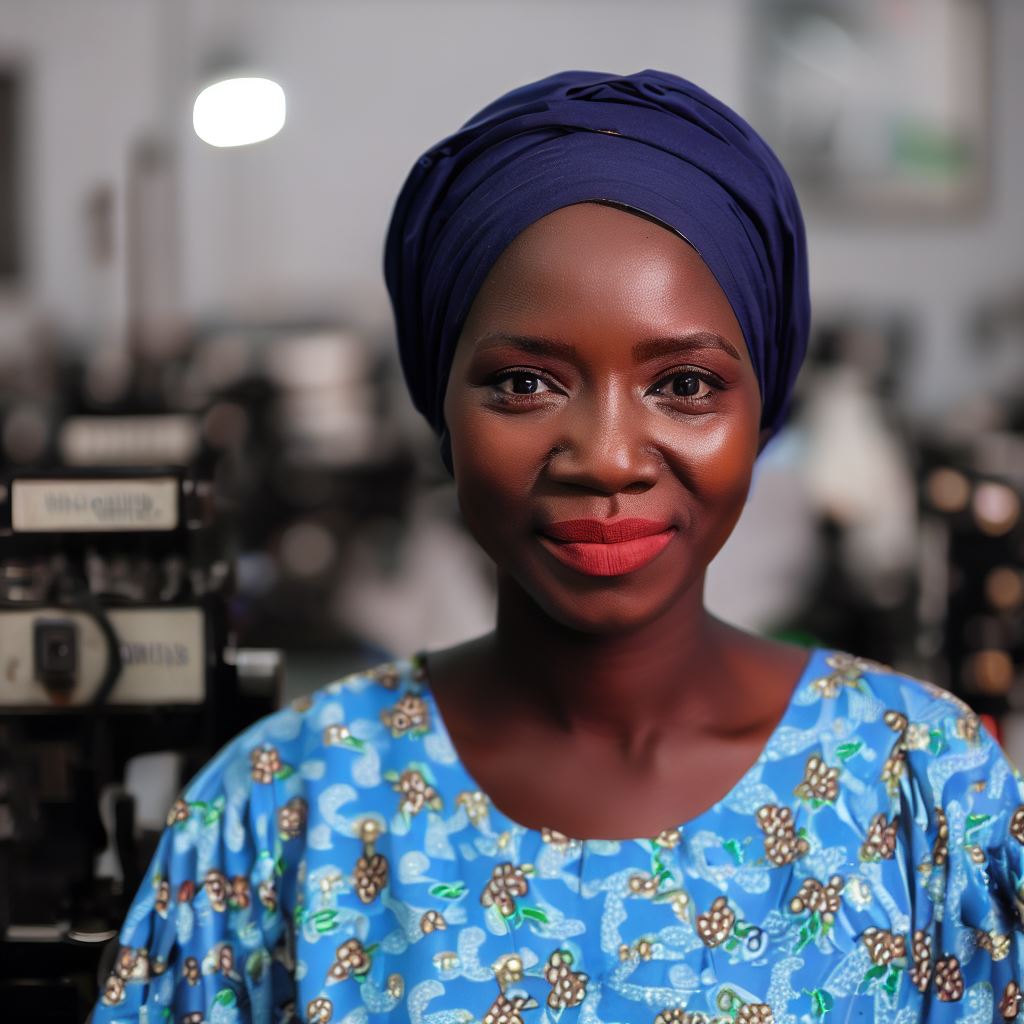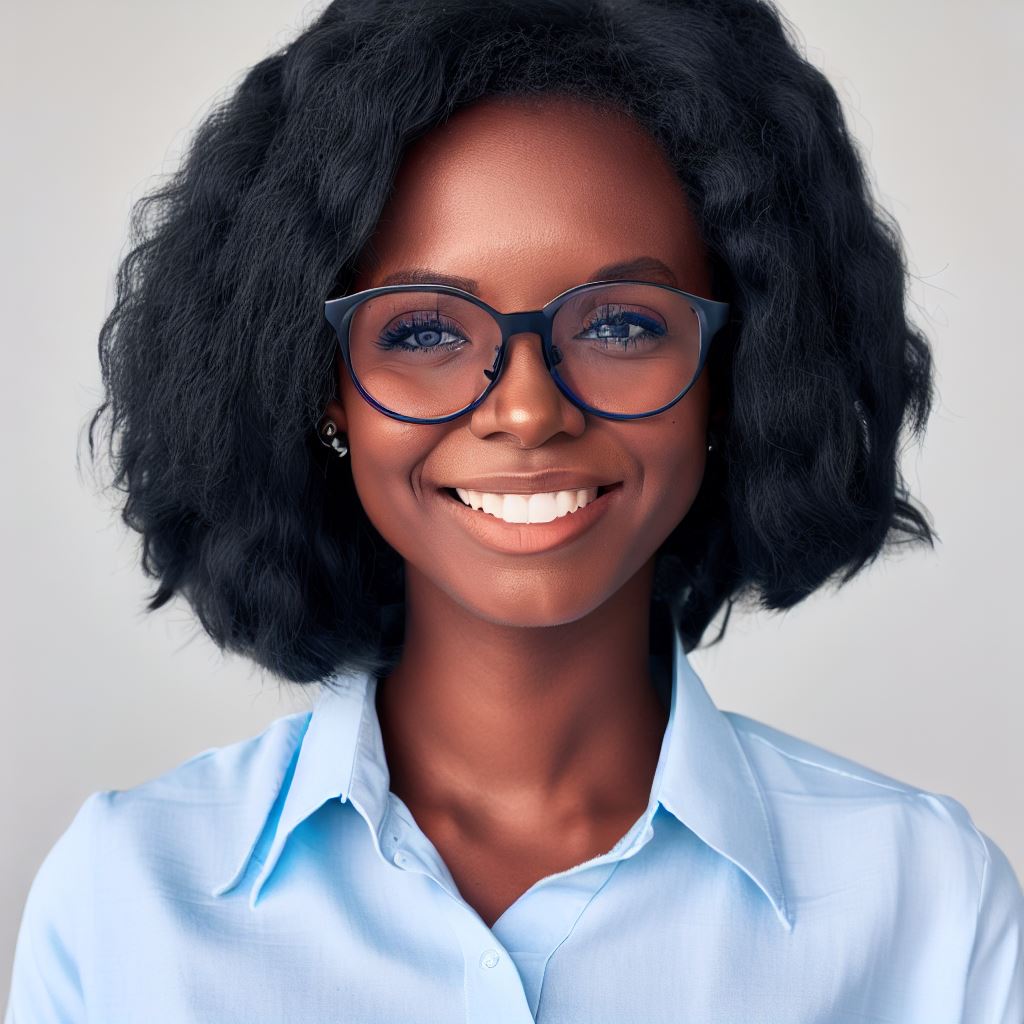Introduction
Women in Optical Fabrication: A Perspective from Nigeria
In this blog section, we will discuss the topic of women in optical fabrication, specifically focusing on Nigeria.
Overview of Optical Fabrication
Optical fabrication is the process of crafting optical components and devices, playing a crucial role in various industries.
It encompasses the manufacturing of lenses, mirrors, and other optical elements used in telescopes, cameras, and microscopes.
Women’s Contribution to Optical Fabrication
Traditionally a male-dominated field, women have made significant contributions to optical fabrication.
Despite facing challenges and stereotypes, women in Nigeria have excelled in this industry.
From the creation of precision lenses to calibration of optical devices, women prove their expertise and skills.
They are involved in designing, testing, and assembling optical instruments, ensuring high-quality products.
Moreover, women contribute to research and development efforts, bringing innovative solutions to the field of optical fabrication.
Their perspectives and insights have enriched the industry, pushing boundaries and creating opportunities for advancement.
In Nigeria, initiatives promoting women’s participation in science and technology, such as scholarships and mentorship programs, have played a vital role.
Women in Nigeria are breaking barriers and making remarkable strides in the field of optical fabrication.
Their contribution is not only limited to technical expertise but also bringing diversity and innovation to an industry that was once male-dominated.
Through support and encouragement, women in Nigeria continue to shape the future of optical fabrication, creating a more inclusive and thriving industry.
Challenges Faced by Women in Optical Fabrication in Nigeria
Gender disparity persists in optical fabrication, particularly with societal and cultural barriers limiting women’s opportunities:
- Lack of awareness and exposure hinders women’s entry due to limited information.
- Women face challenges accessing quality education, restricting skill development.
- Prejudice and discrimination from male counterparts affect career advancement.
- Traditional gender roles and family obligations discourage women’s participation.
- Inadequate female role models and mentors leave aspiring women with limited guidance.
Challenges women encounter in optical fabrication:
- Few job openings due to limited recruitment efforts.
- Gender pay gaps persist, with women earning less for similar work.
- Barriers to career advancement, including limited training and mentorship.
- Inadequate workplace policies for work-life balance.
- Limited networking opportunities for professional growth.
Addressing these issues necessitates collective efforts from society and the industry, including awareness campaigns, educational equality, mentorship programs, and workplace policies promoting gender equity.
Promoting women’s participation in optical fabrication can foster innovation and industry progress.
Read: Forensic Pathology Tools and Techniques in Nigeria
Success Stories of Women in Optical Fabrication in Nigeria
1. Dr. Nneka Onyinye – A Trailblazer in the Field
Dr. Nneka Onyinye is a prime example of a woman who has achieved remarkable success in optical fabrication in Nigeria.
With her unwavering determination and exceptional skills, she has consistently pushed boundaries in the field.
Dr. Onyinye’s contributions to the development of innovative optical devices have revolutionized healthcare in the country.
2. Engineer Adaobi Okoro – Breaking Stereotypes and Redefining Success
Engineer Adaobi Okoro’s journey in optical fabrication showcases the power of determination.
Despite facing societal stereotypes, she never wavered in her pursuit of excellence. Okoro’s outstanding contributions to the field have paved the way for other aspiring women in Nigeria.
Her work has led to the production of affordable eyeglasses, ensuring improved visual health for many.
3. Professor Amaka Eze – A Beacon of Inspiration
Professor Amaka Eze’s dedication to optical fabrication has been instrumental in improving eye care in Nigeria.
Her groundbreaking research on manufacturing processes has significantly enhanced the quality of optical components produced locally.
Because of Professor Eze’s efforts, Nigeria has become a hub for precision optics, attracting both national and international recognition.
4. Dr. Chiamaka Okafor – Empowering Women in the Field
Dr. Chiamaka Okafor’s achievements in optical fabrication extend beyond her technical prowess.
She has established platforms to empower and mentor young women interested in pursuing a career in optics.
By organizing workshops and seminars, Dr. Okafor aims to equip women with the knowledge and skills required for success in a predominantly male-dominated field.
5. Engineer Ifeoma Okeke – Innovations for Sustainability
Engineer Ifeoma Okeke, renowned for sustainable optical fabrication, developed eco-friendly materials and techniques, reducing the industry’s environmental impact. Okeke inspires other developing nations.
These Nigerian women excel in optical fabrication, shaping affordable and quality eye care solutions.
Despite their remarkable achievements, women in this field need more recognition and opportunities to address gender disparities.
Government, educational institutions, and industry leaders must encourage women with scholarships, mentorship, and research grants.
Promote diversity and inclusivity, ensuring women’s voices and perspectives influence decision-making.
Recognizing and supporting women in optical fabrication is vital for innovation in eye care technology.
Read: Salary & Benefits: Forensic Pathologists in Nigeria
Initiatives and Programs Supporting Women in Optical Fabrication in Nigeria
Initiatives in Nigeria empower women in optical fabrication through mentorship, training, and networking, promoting gender equality and industry success.
- The Women in Optics Group organizes meetings, workshops, and seminars, fostering a supportive network for women.
- Mentorship programs within the group provide guidance and advice from experienced professionals to young women.
- The Nigerian Society of Optics offers specialized training programs, ensuring women acquire essential skills for optical fabrication.
- Training encompasses lens polishing, optical design, and coating techniques, making women competitive in the job market.
- Mentorship enhances women’s technical skills and confidence, encouraging them to pursue leadership roles.
- Networking opportunities enable knowledge-sharing and collaboration among women and industry professionals.
- These initiatives promote gender equality and bridge the gender gap, creating a diverse optical fabrication sector in Nigeria.
Read: Top Schools for Forensic Pathology Studies in Nigeria

Promoting Gender Equality and Inclusion in Optical Fabrication
In order to promote gender equality and inclusion in the field of optical fabrication, it is important to recognize the significance of these principles and employ strategies that support women.
Here are the reasons why gender equality and inclusivity matter in this industry:
Importance of Gender Equality and Inclusivity
- Equal opportunities: Gender equality ensures that both men and women have the same access to opportunities in optical fabrication.
- Talent utilization: By creating an inclusive environment, the industry can tap into the full potential of all individuals, regardless of their gender.
- Enhancing innovation: Gender diverse teams bring different perspectives and ideas, leading to more innovative solutions in optical fabrication.
- Improved performance: Research has shown that gender diverse companies tend to outperform those lacking diversity, resulting in increased productivity and profitability.
- Addressing unconscious bias: Promoting gender equality helps to challenge and overcome unconscious biases that may exist within the field.
- Reflecting customer base: A diverse workforce can better understand and address the needs of a diverse clientele, leading to improved customer satisfaction.
Now that the importance of gender equality and inclusivity has been established, it is crucial to discuss strategies that can be implemented to promote equal opportunities and support for women in optical fabrication:
Strategies to Promote Equal Opportunities and Support for Women
- Education and outreach: Encourage young girls to pursue careers in optical fabrication through educational programs and awareness campaigns.
- Mentorship and networking: Establish mentoring programs and networking opportunities to provide guidance and support for women in the field.
- Gender-neutral recruitment: Ensure fair and transparent recruitment processes that do not discriminate based on gender.
- Flexible work arrangements: Offer flexible work hours, part-time options, and remote work opportunities to accommodate the needs of women who may have caregiving responsibilities.
- Leadership development: Provide leadership training and opportunities for women to advance their careers and take on leadership roles in the industry.
- Equal pay and benefits: Ensure that women receive equal pay and benefits for equal work in optical fabrication.
Besides strategies, it is important to recognize the benefits that a diverse workforce, including increased women’s participation, brings to the field:
Benefits of a Diverse Workforce and Women’s Participation
- Improved problem-solving: Diverse perspectives lead to more creative and effective problem-solving in optical fabrication.
- Increased innovation: Diversity fosters innovation by bringing together different ideas and approaches to challenges.
- Enhanced teamwork: A diverse workforce enhances teamwork and collaboration, allowing for improved outcomes.
- Better decision-making: Including women in decision-making processes leads to more well-rounded and informed decisions in optical fabrication.
- Positive brand image: Companies that prioritize diversity and women’s participation are seen as progressive and inclusive, which can improve their reputation.
In review, promoting gender equality and inclusion in optical fabrication is crucial for the industry’s success and growth.
By recognizing the importance of these principles, implementing strategies to support women, and embracing a diverse workforce, the field can achieve greater innovation, performance, and overall success.
Read: Licensing and Certification for Pathologists in Nigeria
Conclusion
This blog section has shed light on the experiences and challenges faced by women in optical fabrication in Nigeria.
It discussed the lack of representation, gender biases, and limited opportunities.
Recognizing and empowering women in this field is crucial as it not only promotes gender equality but also brings diverse perspectives and skills to the industry.
Women should have equal access to education, training, and leadership opportunities in order to maximize their contributions to optical fabrication.
It is important for readers to support and promote gender equality in the field by advocating for equal rights and opportunities for women.
This can be done by encouraging and mentoring young women interested in pursuing careers in optical fabrication, promoting inclusive hiring practices, and creating a supportive work environment that values diversity.
By embracing and empowering women in optical fabrication, Nigeria can harness the untapped potential and talent that women possess.
This will lead to a stronger and more innovative industry that can contribute significantly to the country’s technological advancement and economic growth.
Ultimately, let us all work towards a future where gender equality is the norm in optical fabrication in Nigeria, and where every individual, regardless of their gender, has the opportunity to thrive and succeed in the field.




